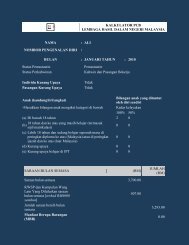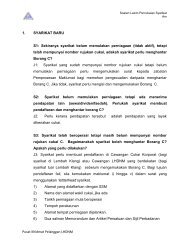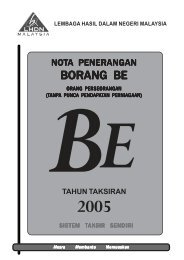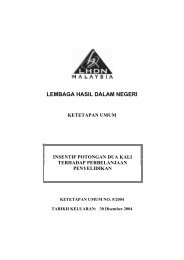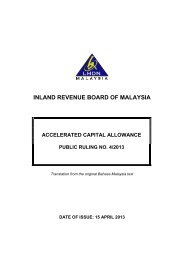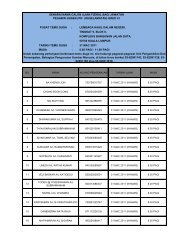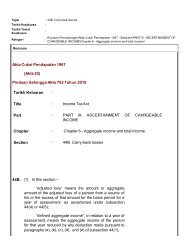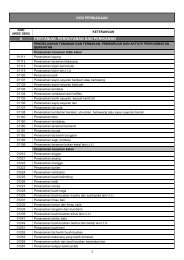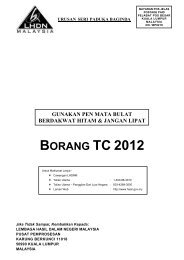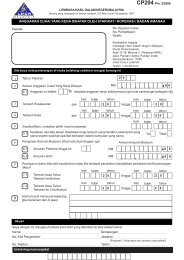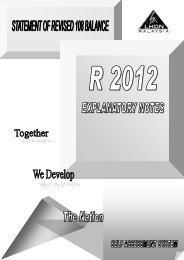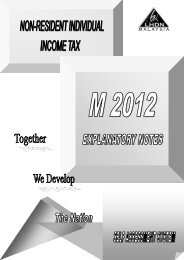Tan Sri Mohd Sidek Hassan
Tan Sri Mohd Sidek Hassan
Tan Sri Mohd Sidek Hassan
- No tags were found...
You also want an ePaper? Increase the reach of your titles
YUMPU automatically turns print PDFs into web optimized ePapers that Google loves.
<strong>Tan</strong> <strong>Sri</strong> Abdul Rahman MamatThe argument for liberalisation in economic development is that afreer flow However, of goods, services the situation and people has changed leads as to other greater countries efficiency, in theand efficiency region leads to are cost also reduction opening and up their competitiveness.markets, and with low labourLiberalisation means costs, different they pose things severe to different competition people, for not Malaysia. only in application,but also its implications. In the context of economic development, liberalisationmeans the removal of restrictions to allow “a free flow of goods, services andpeople across border.”The argument for liberalisation in economic development is that a freer flow ofgoods, services and people leads to greater efficiency, and efficiency leads to costreduction and competitiveness. Competitiveness leads to increased sales/exportswhich contribute to a bigger economic pie or economic growth. Economic growthcreates jobs.Factors that can impede the drive forefficiency or increase the cost of productioninclude excessive taxes, import restrictions,poorly-trained workforce, bureaucraticdelays, licensing or restrictive licensingrequirements.Owners of resources or “factors ofproduction,” usually seek the best place toemploy their resources to achieve maximumgain. In today’s “borderless” world, theowners of resources have a greater choiceas to where to deploy their resources, notonly at home but also abroad.However, the situationhas changed as othercountries in the regionare also opening up theirmarkets, and with lowlabour costs, they posesevere competition forMalaysia.This is evident from the increasing flow ofglobal foreign direct investments (FDIs). To remain globally competitive in producinggoods and services or in attracting investors, more and more countries, such asChina, Vietnam and India, have pursued the path of economic liberalisation. Moreoptions and choices.Liberalisation, or opening up of the market, gives wider choices of goods or servicesfor consumers which contribute to their satisfaction. The consumer has a choiceof whether to buy an expensive but high quality product or service, or a valuefor-moneyproduct or service that gives satisfaction, without burning a big hole inthe pocket, or cheaper goods or services that match the budget.The entry of foreign goods or producers in the market intensifies competition.Foreign products or producers can generate competition due to better designs29



